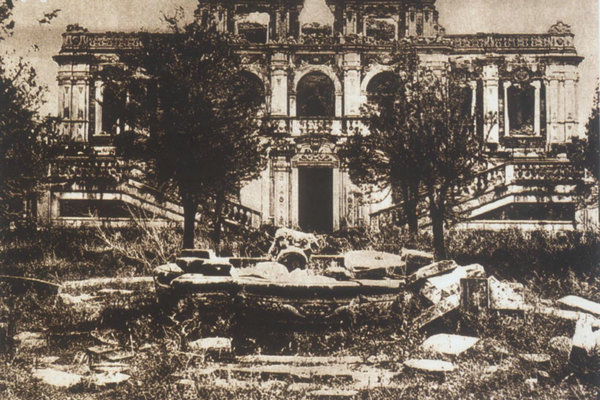 |
|
Ruins of Xieqiqu's northern section in 1879. [Photo provided to China Daily] |
The Old Summer Palace, designed and supervised by emperors themselves and built by the most talented and skilled workers, artisans and artists in ancient China, was the pinnacle of achievement in Chinese traditional parks, Guo says.
The palace's name is a little misleading, for emperors and their families did not just reside there during summer. In fact it was in the Old Summer Palace rather than the Forbidden City that emperors spent most of their time as they managed the country, met high-level officials and foreign ambassadors and celebrated festivals.
In the middle of the Qing Dynasty, Jiuzhou Qingyan was the residence of emperors, empresses and concubines. Tianran Tuhua, literally meaning a natural painting, one of the 40 top beauty spots in the Old Summer Palace, was renowned for its bamboo.
Though Guo has long been renowned for her expertise, He was astonished at how the professor could envision in a field of weeds the splendid palaces that the allied army of Britain and France looted and burned down in 1860.
Now technology is making Guo's feat look rather simple. Anyone visiting the Old Summer Palace can see the original look of buildings on the screen of an iPad that can be hired in the park. The iPad has an app installed that was developed by Beijing Re-Yuanmingyuan Company Limited. He Yan is the director of Tsinghua Heritage Institute for Digitalization.